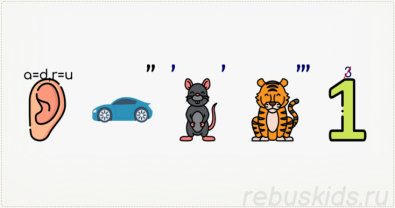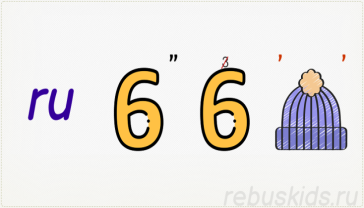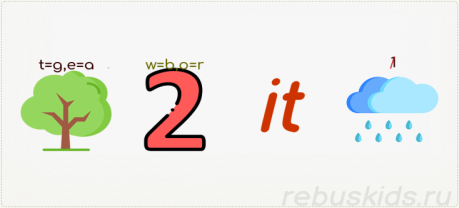План-конспект урока
“SCHOOL EDUCATION IN RUSSIA AND GREAT BRITAIN”
Группа: 244а
Дата проведения: 17 апреля 2024 г.
Тема урока: Образование в России и Великобритании
Тип урока: обобщающий урок
Цель урока: формирование и совершенствование продуктивных умений обучающихся по теме «Образование в России и Великобритании»
Задачи урока:
Образовательные:
- познакомить с лингвострановедческой информацией
- систематизировать знания обучающихся по теме «Образование»;
- совершенствовать навыки практического владения английским языком по видам речевой деятельности (говорение, чтение, аудирование);
- активизировать употребление изученной лексики, закрепить употребление грамматических форм;
Развивающие:
- формировать у обучающихся внутреннюю мотивацию к изучению иностранного языка и культуры;
- развивать умения анализировать, обобщать;
- развивать способности к языковой догадке;
- развивать умения использовать иностранный язык как инструмент познавательной деятельности при изучении материала страноведческого характера
- развивать репродуктивные и продуктивные речевые действия;
- развивать внимание и слуховую память;
- расширять кругозор.
Воспитательные:
- воспитывать потребность в самообразовании
- формировать уважение к культуре других народов и культуре своей страны;
- воспитывать чувство ответственности
Оснащенность урока:
Раздаточный материал (карточки, текст)
Аудио, видео
Презентация
План урока
1. Организационный момент (2 мин.)
2. Введение в тему (3 мин.)
3. Активизация речевых навыков, фонетическая зарядка (7 мин.)
4. Систематизация знаний по теме «Система образования в Великобритании»
4.1 Работа с видеороликом “Types of Schools in the UK” (3 мин.)
4.2 Работа с текстом School Education in Great Britain (15 мин.)
4.3 Работа с видеороликом «10 самых интересных фактов об образовании в Великобритании» (20 мин.)
5. Систематизация знаний по теме «Система образования в России»
5.1 Matching – Сопоставление (работа в парах) – 10 мин
5.2 True or False – Правильно-неправильно – 10 мин.
6. Закрепление материала: игра «Самый умный» (15 мин)
7. Рефлексия (5 мин)
Ход урока
Организационный момент (2 мин.)
T.: Hello, my dear! I’m glad to see you. How are you?
2. Введение в тему (3 мин.):
Look at the rebuses and guess the topic of our lesson:



Yes, we are going to speak about School Education in Russia and Great Britain.
3. Активизация речевых навыков, фонетическая зарядка (7 мин.)
Education is very important in our life. Look at the board.
- Find the Russian equivalent for the quotation “Education is the movement from darkness to light.” («ученье – свет, а неученье – тьма»).
- Comment on the quotation. But first, let’s activate your vocabulary to do this task.
Vocabulary:
To be a necessary step in getting a job – быть необходимым шагом, чтобы получить работу
Knowledge is power – знание - сила
Higher education – высшее образование
An educated person – образованный человек
To demand perfect knowledge – требовать прекрасные знания
An intelligent person – умный человек
To share ideas with – делиться идеями с
To get a well-paid job – получить хорошо оплачиваемую работу
To develop communication skills and team spirit – развивать коммуникативные умения и командный дух
To influence character building – влиять на становление характера
To adapt to the modern life – адаптироваться к современной жизни
To develop natural abilities – развивать природные способности
To face an intellectual challenge – столкнуться с интеллектуальным вызовом
To be literate (illiterate) – быть грамотным (неграмотным)
The age of information and technological devices – век информации и технических устройств
To produce new and original ideas – создавать новые и оригинальные идеи
4.Систематизация знаний по теме «Система образования в Великобритании»
4.1 Now we will speak about education in Great Britain. We have already discussed primary school education and types of schools. Now let’s revise. Please, watch the video and answer some questions in it.
(просмотр видеоролика Types of school in the UK, студенты отвечают на вопросы в ролике) – 3 мин.
4.2 Работа с текстом School Education in Great Britain (студенты работают в группах, отвечают на вопросы: 1-4 первой группе, 5-8 второй группе) – 15 мин
School Education in Great Britain
English education offers two systems: a system of non fee-paying and a private system of Independent Schools.
Compulsory school begins at the age of five, but before that age children can go to a nursery school. School is compulsory till the children are 16 years old. When children are 16 they can continue their education in the Sixth form. Having passed A-level at the age of 18 they get an opportunity to enter the University.
There are two stages within the system of both fee-paying and non fee-paying schools. Younger and older children are divided at various stages, while those aging 5-11 attend Primary Schools, the others aging 11-18 go to the Secondary Schools.
Secondary Schools can be divided into: Comprehensive offering all styles of education in one school, but some areas still separate children into academic Grammar Schools and the more vocational Technical or Secondary Modern Schools. The majority attend comprehensives.
In Britain students aged 16 take GCSE (General Certificate of Secondary Education) exams between May and June. They get the results in August. The exam grades from A (the top) to G. Students can leave school at 16 if they want to and start working. Students who do well in their GCSE exams often go on to study for A (Advanced) levels in three of four subjects. They take their A-level exams at the age of 18. Many of them then go to the college or university.
At what age do British children start and leave school?
In Great Britain, education is compulsory between the ages of 5 and 16, but many children attend a nursery school before they are five.
What stages is British education divided into?
At the age of five, children start primary school. Then, at the age of eleven, they begin their secondary education. When children are 16 they can continue their education in the Sixth form. Having passed A-level at the age of 18 they get an opportunity to enter the University.
What types of schools are there in Britain?
Most schools are comprehensive, but before the 1960s there had been grammar, technical and secondary modern school. Grammar schools provide a mainly academic education, while technical schools provide both general academic education and emphasize on technical subjects. Grammar schools are usually single-sex, and comprehensive schools are mixed.
Are all schools free?
Most children go to state schools, which are maintained by the government and free of charge, and only about 6% attend fee-paying private or independent schools.
How many terms are there in a school year?
A school year is divided into three terms, three month each, named after seasons: autumn, winter and spring.
What are the marks children get at school?
Each school day is divided into periods of 40-50 minutes, time for various lessons with 10-20 minutes' breaks between them. Pupils get marks: A, B, C, D and G. The best mark is A. The worst mark is G.
What exams do students have when they are 16?
The main exams are GCSEs (The General Certificate of Secondary education), which are taken by students of all levels of ability in any of a range of subjects.
What exams do students have when they are 18?
At 18 some students take A-level (the General Certificate of Education Advanced level (GCE A-level) examinations, usually in two or three subjects. It is necessary to have A-level in order to go to a university or Polytechnic. University students graduate after completing their first degree, usually in three years.
4.3 Watch the video in Russian. Translate and comment on the 10 interesting facts about British education (распределить по 1 вопросу для пары. На карточках раздать лексику) – 20 мин.
Vocabulary:
slang words - сленг
prohibited - запрещенный
a gap year – год отдыха от учебы
to have a rest - отдыхать
to get experience in the chosen area – получить опыт в выбранной сфере
the older a student, the less number of subjects- чем старше студент, тем меньше предметов
innovations - новшество
strict examinations – строгие экзамены
to appear - появляться
boarding schools – школы-пансионы
to pay - платить
1. Сленг под запретом
2. Для каждого ученика свой тип школы
3. Год отдыха или приобретения опыта в выбранной сфере
4. Школьная форма
5. Чем старше школьник, тем меньше предметов
6. Традиции плюс новаторство
7. Строгие экзамены уже в начальной школе
8. Здесь появились первые школы-пансионы
9. В каждой школе свое расписание
10. В государственных школах родители тоже платят
5. Систематизация знаний по теме «Система образования в России»
Now look at the system of education in Russia.
5.1 Matching (работа в парах) – 10 мин
Vocabulary:
a wide choice of – широкий выбор
lyceum - лицей
gymnasium- гимназия
the Certificate of Basic Secondary Education – аттестат об основном общем образовании
vocational school – профессиональное училище, техникум
Unified State Exams - ЕГЭ
the Certificate of Complete Secondary Education – аттестат о среднем общем образовании
educational establishment – образовательное учреждение
Children under the age of 7 are taken to…… nursery schools or kindergartens in Russia.
The course of studies at schools is 11 years now: ….4 years of primary school and 7 years of secondary school.
There is a wide choice of schools nowadays: …..state schools, private schools, lyceums, gymnasiums.
After finishing the 9th form and getting the Certificate of Basic Secondary Education …..schoolchildren may either continue the education in the 10th form or go to the vocational schools and colleges.
At the end of the 11th form the school-leavers take ……Unified State Exams and get the Certificate of Complete Secondary Education.
Among higher educational …..establishments are academies and universities.
5.2 And here you can see some statements. You should decide if they are True or False. – 10 мин.
1. The right to be educated in Russia is guaranteed by the Constitution. (True)
2.Education in Russia is compulsory between the ages of 9 and 16. (False)
Education in Russia is compulsory between the ages of 7 and 16. But sometimes children go to school when they are 6.
3.After leaving the 9th form, students must continue their education at secondary school. (False)
After the 9th form pupils have to sit for examinations. Also they have a choice between entering the 10th form of a general secondary school and enrolling in a specialized secondary or vocational school.
4. Tuition in most of schools is free of charge, but there are some private schools which are fee-paying. (True)
5. Having received the secondary education certificate, pupils get the opportunity to enter any higher educational institution. (True)
6. Russian students study 7 years at University. (False)
Russian students study 5 years at University, if they want to become a specialist. If they are getting a Bachelor degree they study 4 years and then 2 years more to become a Master.
6.Закрепление материала: игра «Самый умный» (команды соревнуются, отвечая на вопросы) – 15 мин.
7. Рефлексия: (5 мин)
- You know that education both in Russia and Great Britain have got some advantages and disadvantages. (3 min.)
- Homework: (1 мин)
Please, compare school systems in Russia and the UK in terms of:
Types of schools.
The duration of a school day.
The choice of subjects.
Extracurricular activities.
School discipline.
School uniforms.
Exams
The age children start and leave school.
- Выставление отметок (1 мин)

 Получите свидетельство
Получите свидетельство Вход
Вход












 Школьное образование в России и Великобритании (221.41 KB)
Школьное образование в России и Великобритании (221.41 KB)
 0
0 31
31 0
0 Нравится
0
Нравится
0


